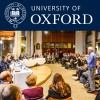From Locke on Toleration to the First Amendment
The First Amendment has had a mixed pedigree and a difficult birth. In this lecture, Distinguished Professor Emeritus of Philosophy Dan Robinson will demonstrate that, in offering protection of the basic liberties — freedom of religion, speech, press, petition, and assembly — the clear language of the First Amendment's final form has been no bar to diverse and conflicting interpretations. This leaves unsettled the question of just what constitutes 'speech' and the grounds on which it loses the Amendment's protection.
Professor Robinson will chart the development of philosophical thought on these freedoms from John Locke to the present day, and address the question of how courts navigate these conflicting interpretations. Operating as they do within the wider cultural climate of the day, he will assess whether the courts do, and should, remain immune to its fluctuating pressures.
This lecture forms part of a series on Free Speech convened by Professor Sir Richard Sorabji.
Professor Dan Robinson is Distinguished Professor Emeritus of Philosophy at Georgetown University and a Fellow of the Faculty of Philosophy, University of Oxford.




